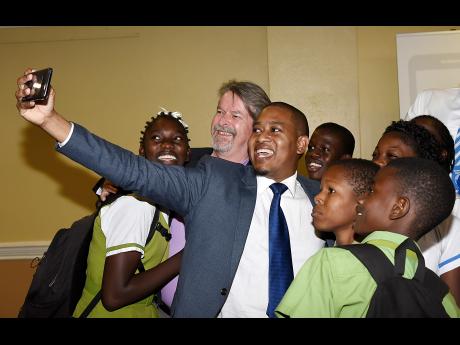Gov’t enabling greater youth participation in decision-making
State Minister in the Ministry of Education, Youth and Information, Floyd Green, says that the Government continues to explore ways to enable greater youth participation in decision-making at the national level.
He said that in addition to reinstating the National Youth Parliament two years ago, 16 youth advisers have been appointed, who have sat on the policy decision-making boards for the National Identification System (NIDS), reform of the Sexual Offences Act, and the Road Traffic Act, among others.
He noted that the National Youth Policy, which was revised last year, has among its objectives "that we must maximise youth participation in the decision-making process".
The National Youth Policy outlines and explores areas for action and indicates six priority areas - education and training; health and well-being; employment and entrepreneurship; youth participation; social inclusion and reintegration; and institutional and youth sector arrangements.
The state minister, who has responsibility for youth, was speaking at the launch of the United Nations Children's Fund (UNICEF) U-Report at The Knutsford Court Hotel in New Kingston on Tuesday.
Genuine youth participation
The free social-messaging tool provides a platform for young people to add their voices to matters of national importance.
Used globally by over five million people in more than 40 countries, U-Report is youth-led and fosters genuine youth participation, allowing them to speak out on issues affecting them.
The initiative is the first of its kind in the English-speaking Caribbean and targets young people between the ages of 13 and 29, who can sign up to be U-Reporters via social media platforms Facebook and Twitter.
Telecommunications giant FLOW has partnered with UNICEF to allow young people to sign up via SMS text messaging at no cost to FLOW users.
Once registered, U-Reporters are sent polls regularly on a wide range of issues, including crime and violence, health and education.

